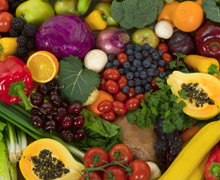More evidence of the benefits of eating almonds.
Researchers at Oregon State University's Linus Paulding Institute found snacking on almonds daily can improve gut and heart health and improve health markers of people with metabolic syndrome.
Staff Reports,
June 30, 2025
Make sure you are getting enough fiber or it could affect your heart.
New research from Sweden shows if your diet is low in fiber you could be susceptible to a more dangerous type of plaque in your coronary arteries.
Staff Reports,
June 23, 2025
Flavonoids from different sources could be the key to staying healthy longer.
Researchers from Queen's University Belfast, Edith Cowan University Perth, and the Medical University of Vienna found that those who consume a diverse range of foods high in flavonoids could lower their risk of developing serious health conditions and have the potential to live longer.
Staff Reports,
June 09, 2025
Coffee before bed makes it harder to sleep because it raises you brain's alert level.
Researchers at the University of Montreal found caffeine puts the brain in a state that is more alert and could prevent it from recovering properly.
Staff Reports,
June 02, 2025
You don't need animal protein to build muscle.
New research from the University of Illinois shows that plant protein is just as good as animal protein when it comes to muscle protein synthesis.
Staff Reports,
May 12, 2025
Pecans can do more than just fill your stomach.
Researchers at Penn State University found snacking on pecans improved cholesterol levels and raised the overall diet quality of those who ate them.
Staff Reports,
May 05, 2025
Artificial sweeteners can trick your brain.
Researchers at the Keck School of Medicine at the University of Southern California found the artificial sweetener sucralose increases activity in a region of the brain that regulates appetite and body weight.
Staff Reports,
April 11, 2025
Studies show you may need more vitamin B12 than previously thought.
Researchers at the University of California San Francisco found that the current recommendations for vitamin B12 consumption is not sufficient to ward off neurodegeneration in older adults.
Staff Reports,
March 10, 2025








